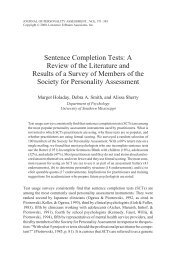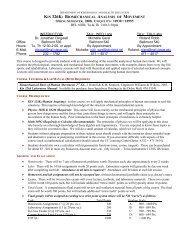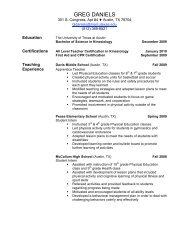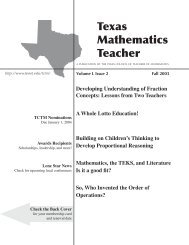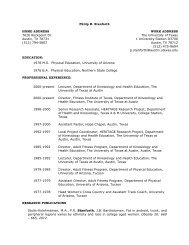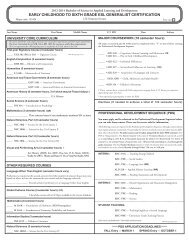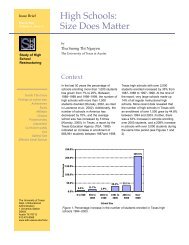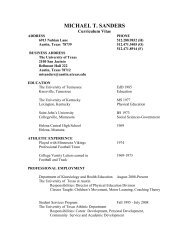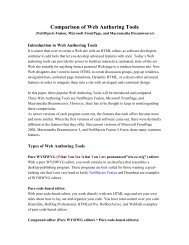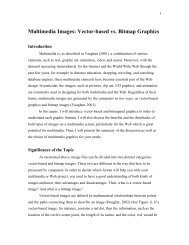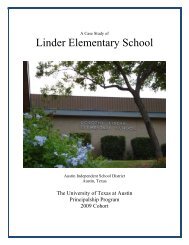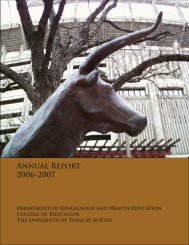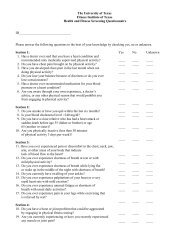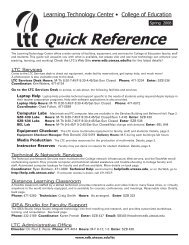The Algebraic Nature of Fractions: Developing Relational Thinking ...
The Algebraic Nature of Fractions: Developing Relational Thinking ...
The Algebraic Nature of Fractions: Developing Relational Thinking ...
Create successful ePaper yourself
Turn your PDF publications into a flip-book with our unique Google optimized e-Paper software.
<strong>Relational</strong> <strong>Thinking</strong> and <strong>Fractions</strong> 22<br />
structure in the execution <strong>of</strong> standard algorithms as they are typically learned which can<br />
be summarized as “do next.”<br />
Further, the thinking displayed by these children resembles the “competent<br />
reasoning” that pr<strong>of</strong>icient mathematical thinkers use to compare rational numbers, as<br />
reported by Smith (1995). Based on an analysis <strong>of</strong> 30 students’ solutions to order and<br />
equivalence problems, Smith argued that competent reasoning is characterized by the use<br />
<strong>of</strong> strategies that exploit the specific numerical features <strong>of</strong> a problem and <strong>of</strong>ten apply only<br />
to a restricted class <strong>of</strong> fractions. <strong>The</strong>se strategies were reliable and efficient. He<br />
contrasted this reasoning with the use <strong>of</strong> generalized, all purpose strategies – such as<br />
conversion to a common denominator to compare fractions – which the students in his<br />
study tended to use as a last resort. 5 <strong>The</strong>se findings led Smith to conclude “the analysis <strong>of</strong><br />
skilled reasoning with rational numbers should … move beyond a focus on particular<br />
strategies to examine the character <strong>of</strong> the broader knowledge system that has those<br />
strategies as components” (p. 38). We are proposing that this system consists <strong>of</strong><br />
children’s informal algebra <strong>of</strong> fractional quantities and that it is expressed in children’s<br />
<strong>Relational</strong> <strong>Thinking</strong>.<br />
From this perspective, Jill and Keenan represent students who are in the process<br />
<strong>of</strong> developing a knowledge base for reasoning about fractions in ways that can be<br />
characterized as pr<strong>of</strong>icient and competent. Moreover, this knowledge base is integrated<br />
with properties <strong>of</strong> whole-number operations and relations and anticipates the algebra <strong>of</strong><br />
generalized quantities, typically taught in the eighth or ninth grade. We are not<br />
5 This approach to numerical reasoning is not unique to children. Dowker (1992) reported<br />
that pr<strong>of</strong>essional mathematicians prefer to approach computational estimation in the same<br />
ways, that is, by exploiting specific numerical features <strong>of</strong> a problem rather than using a<br />
generalized algorithm that works in all cases.



